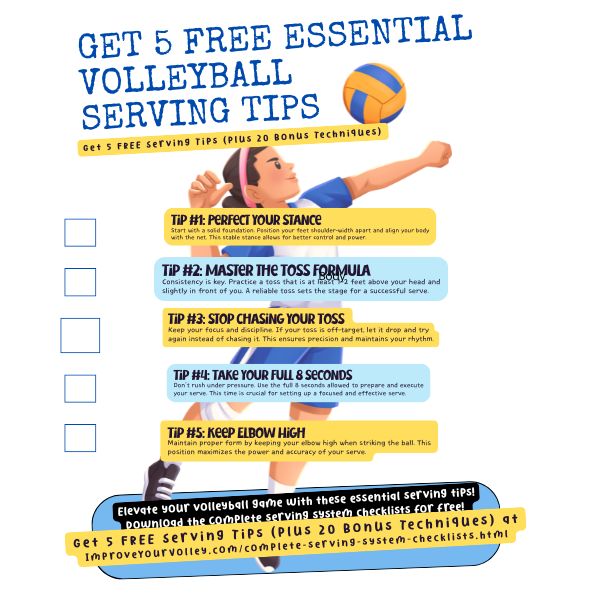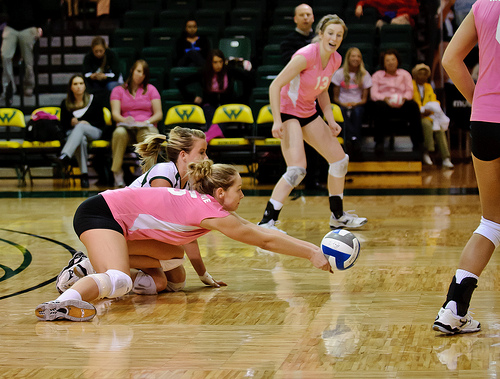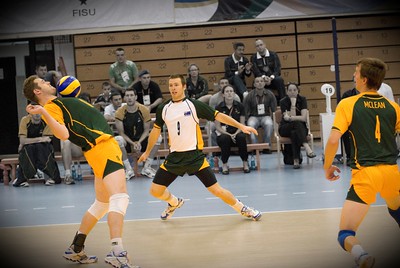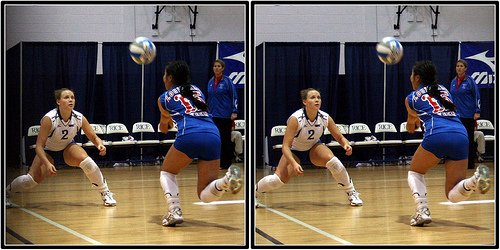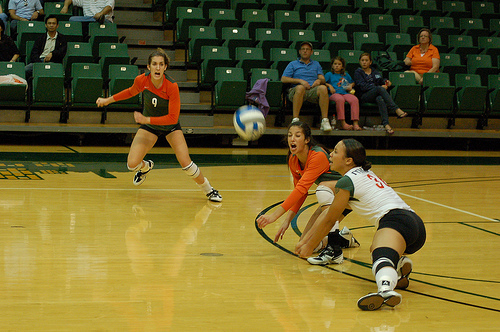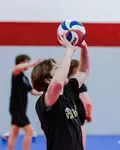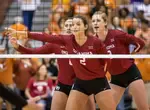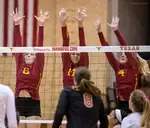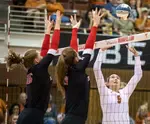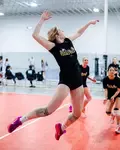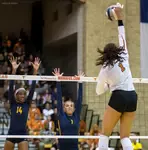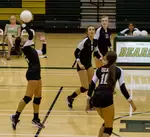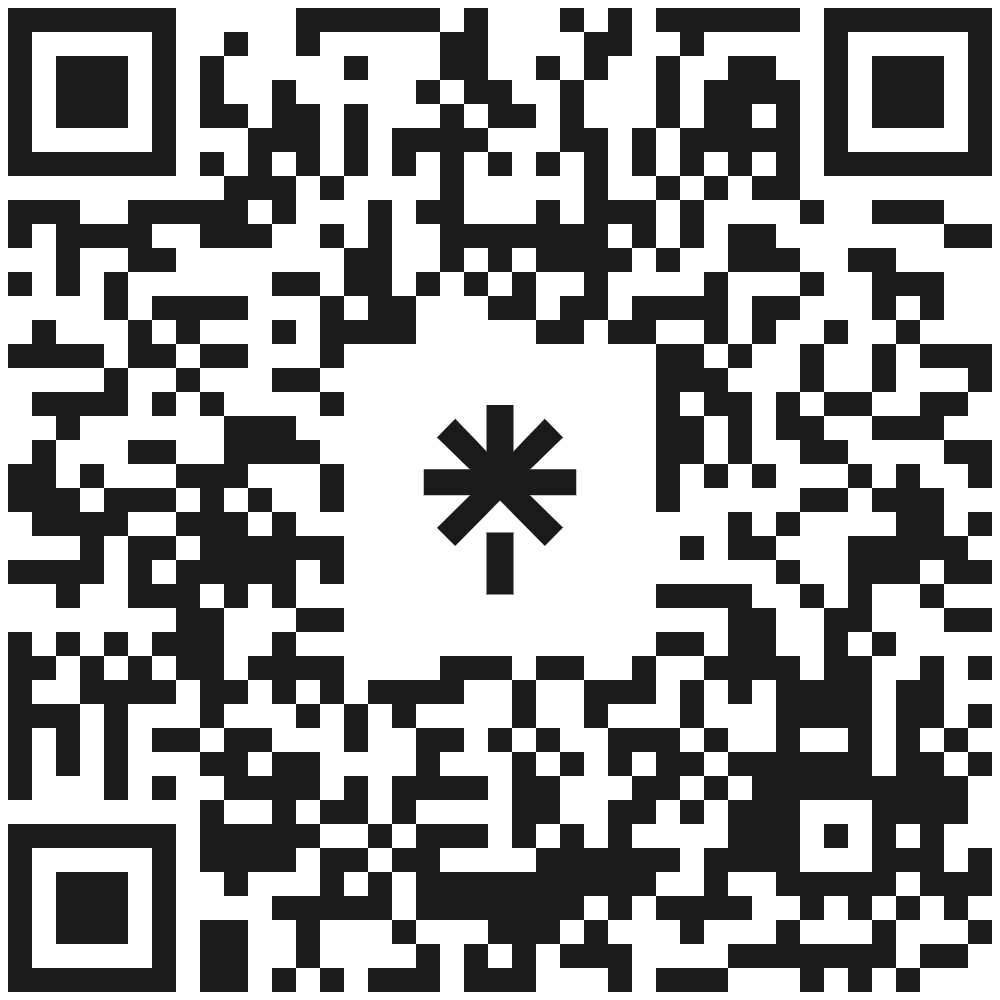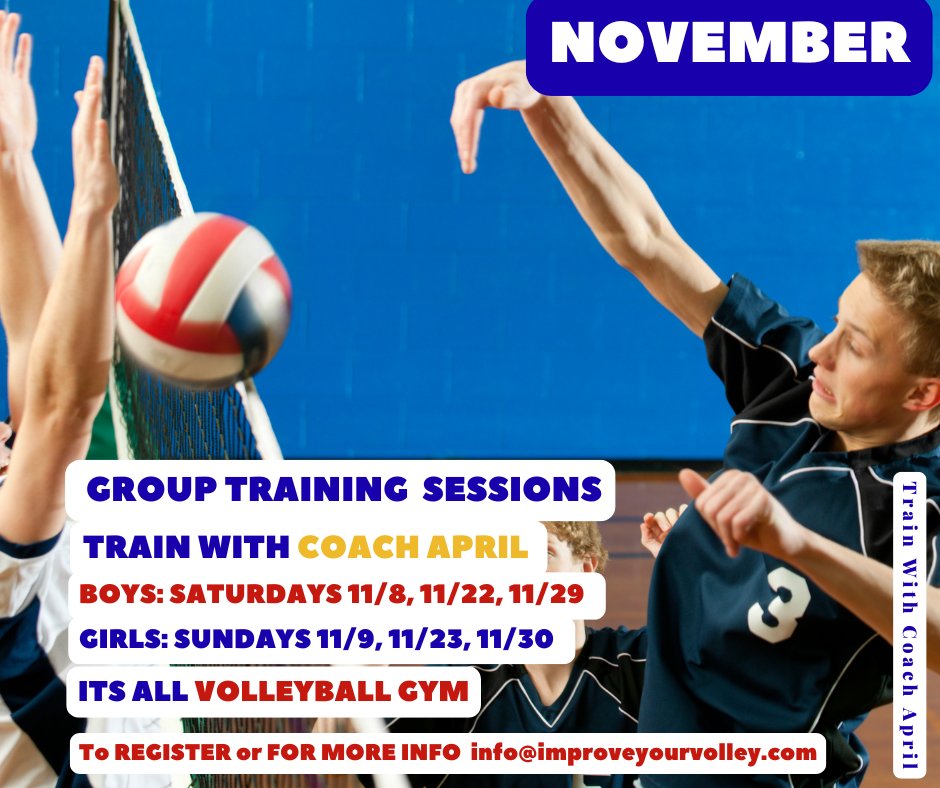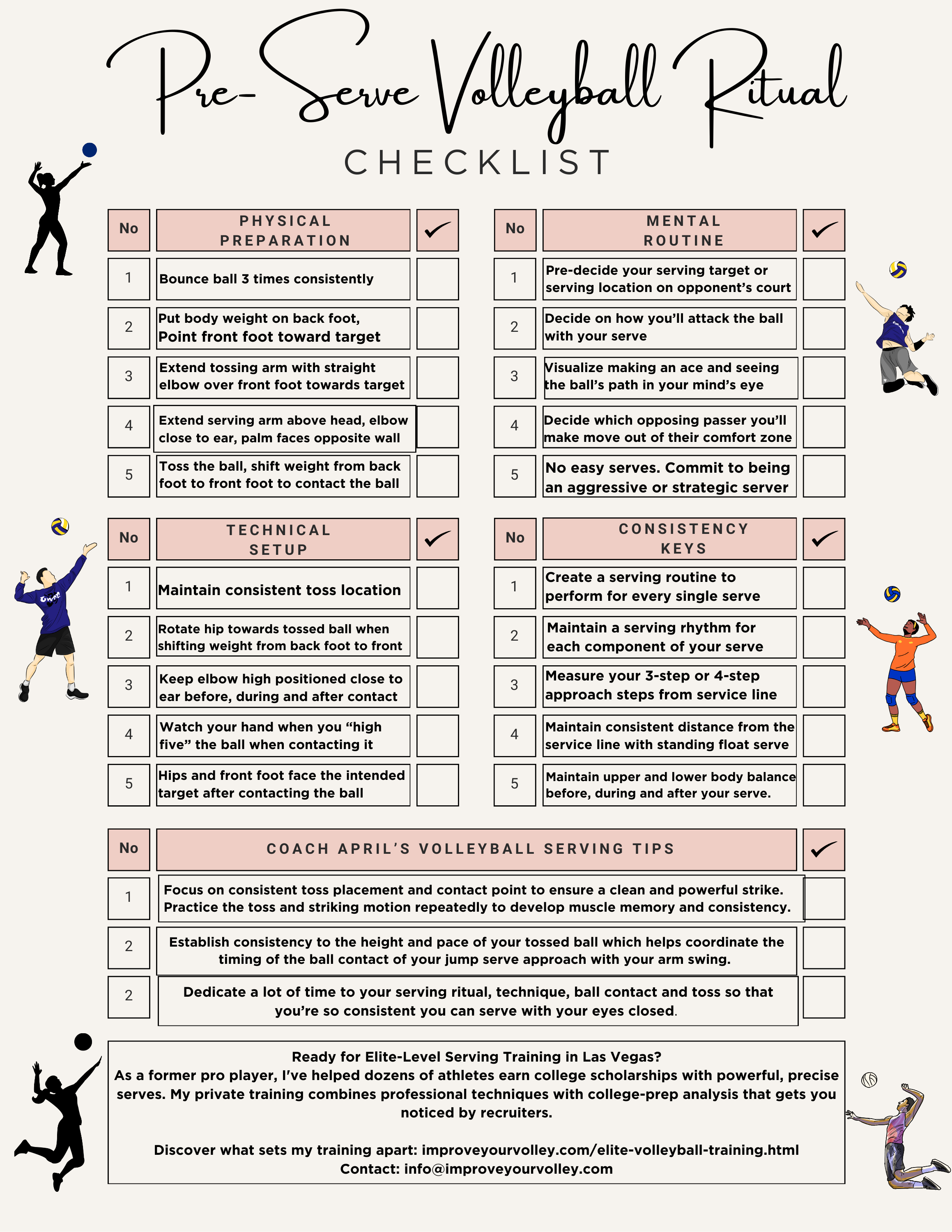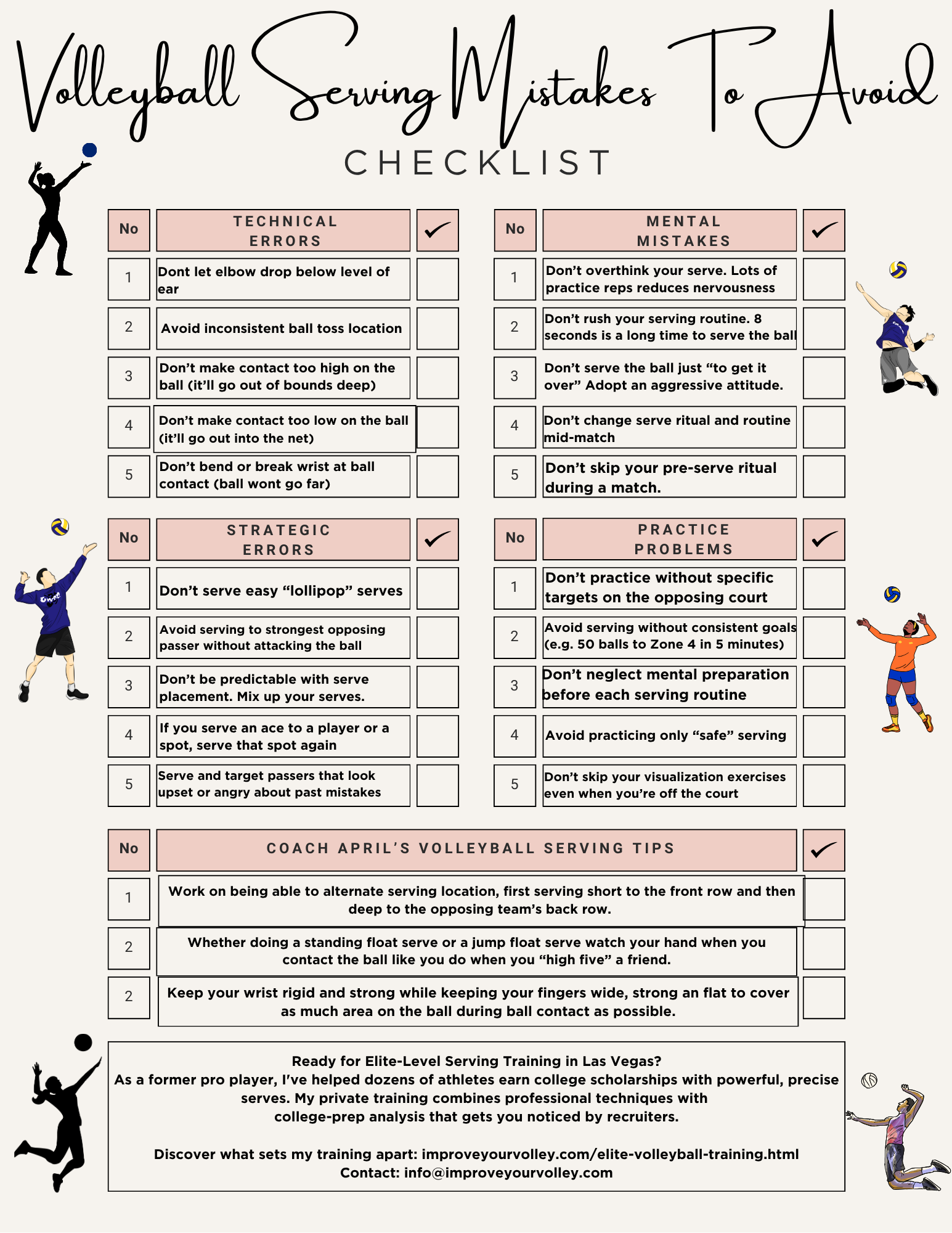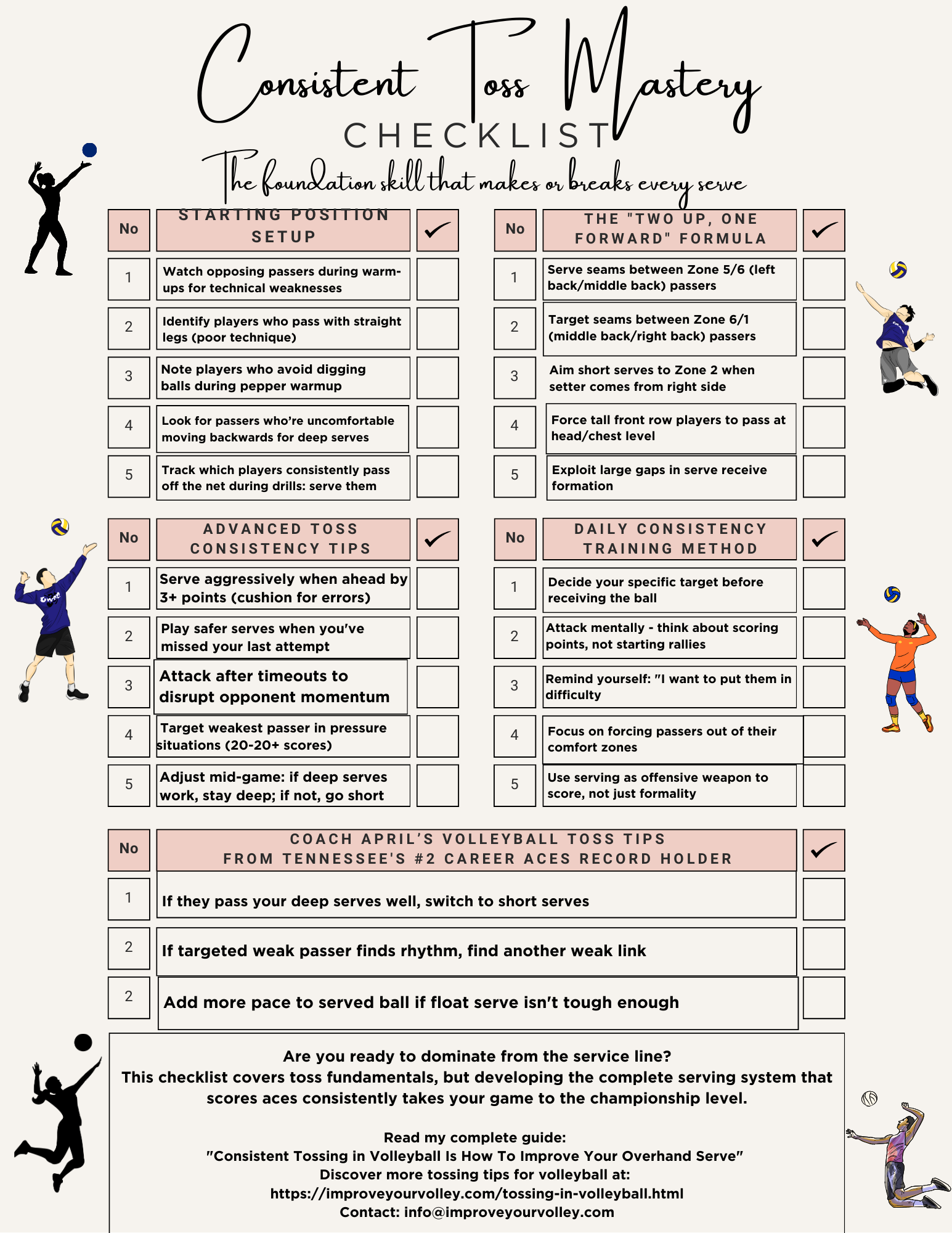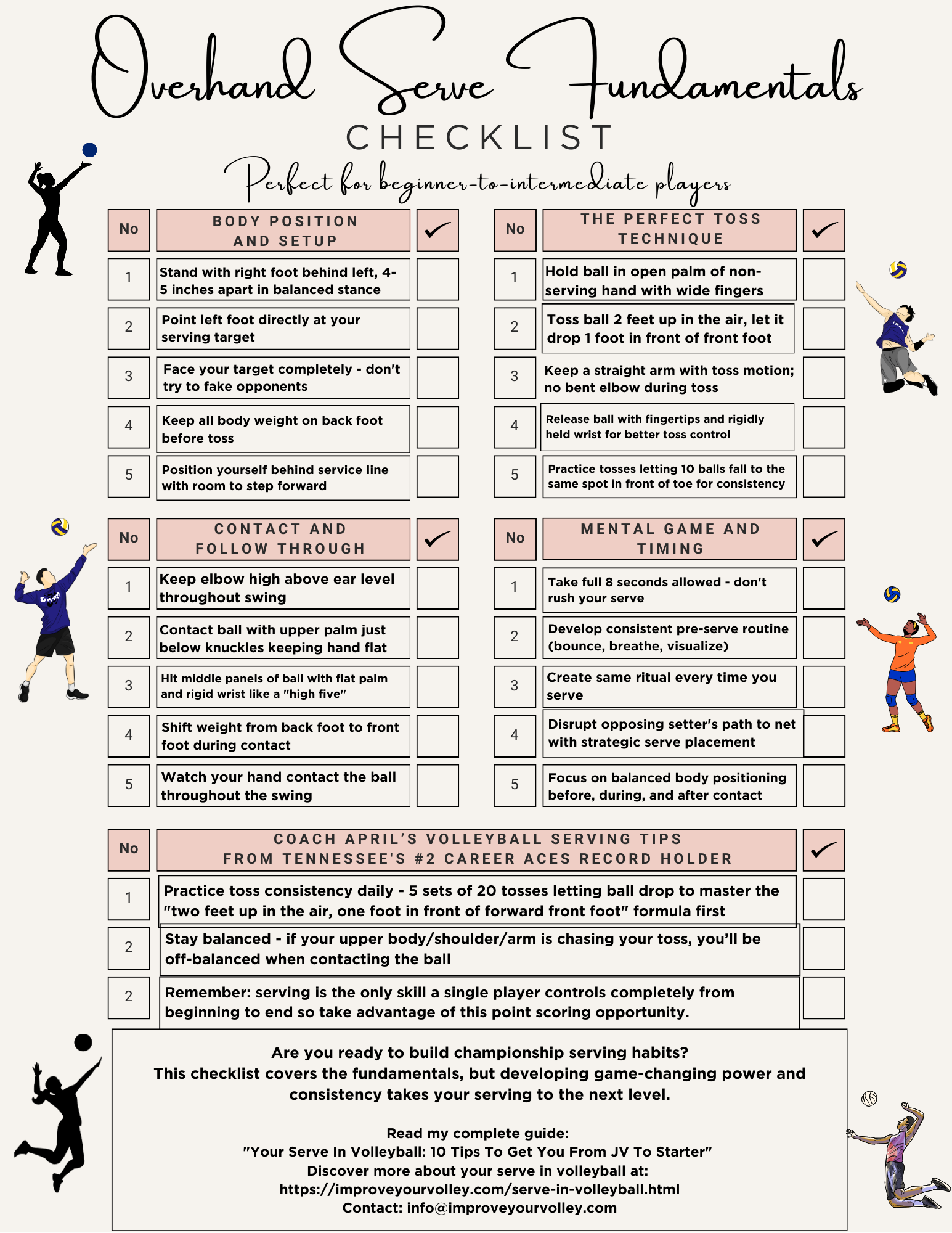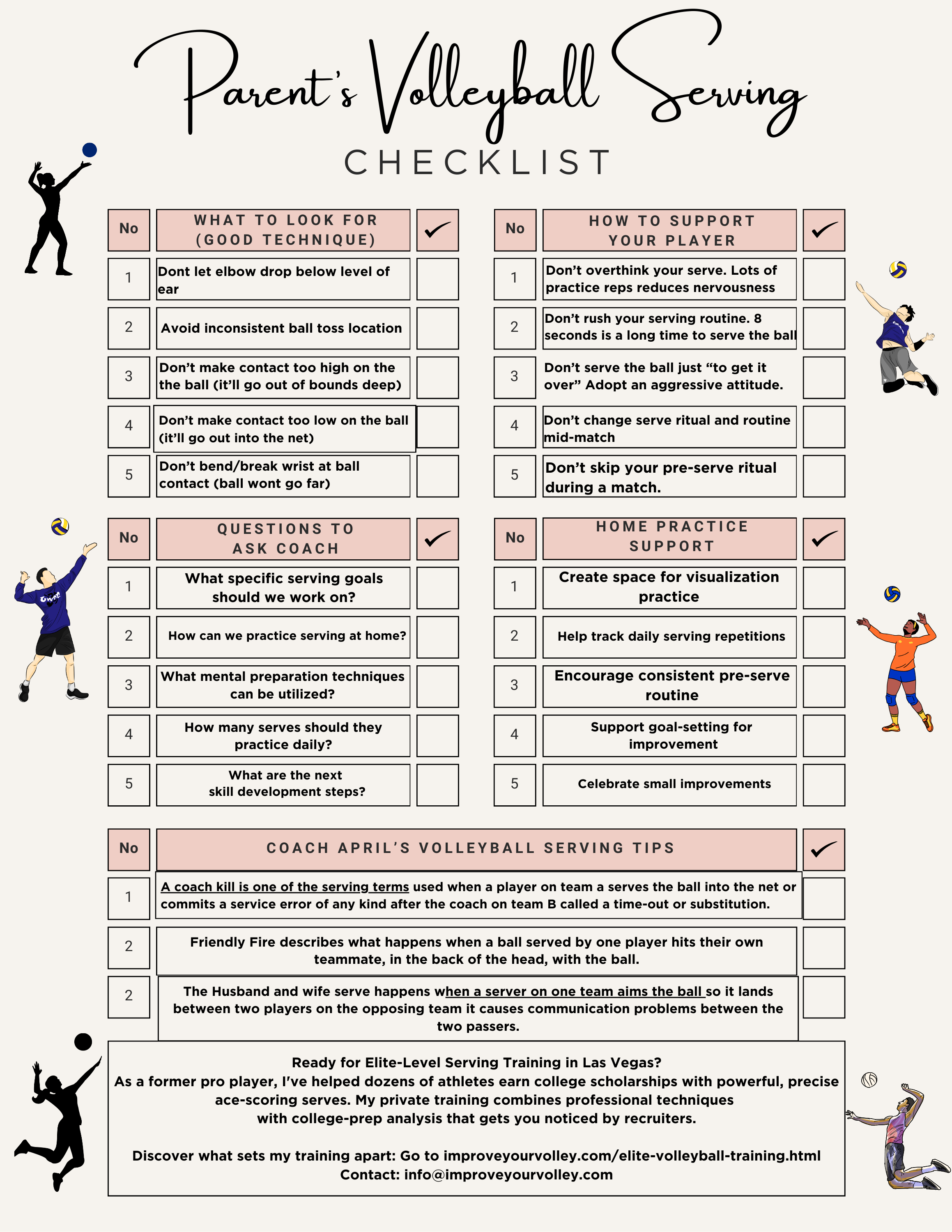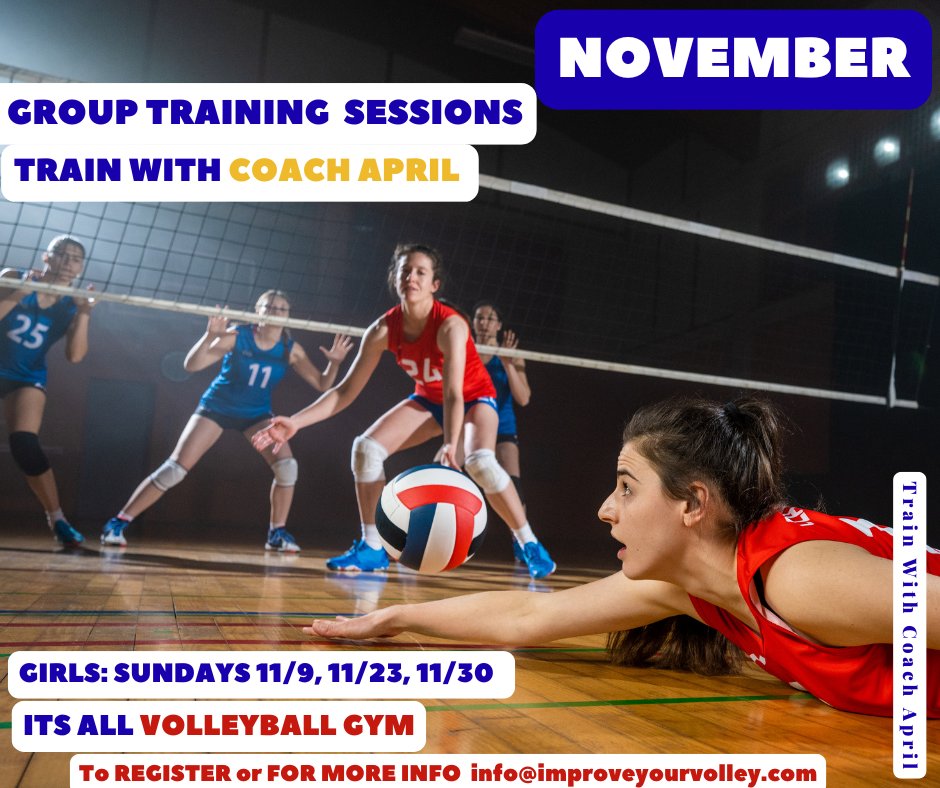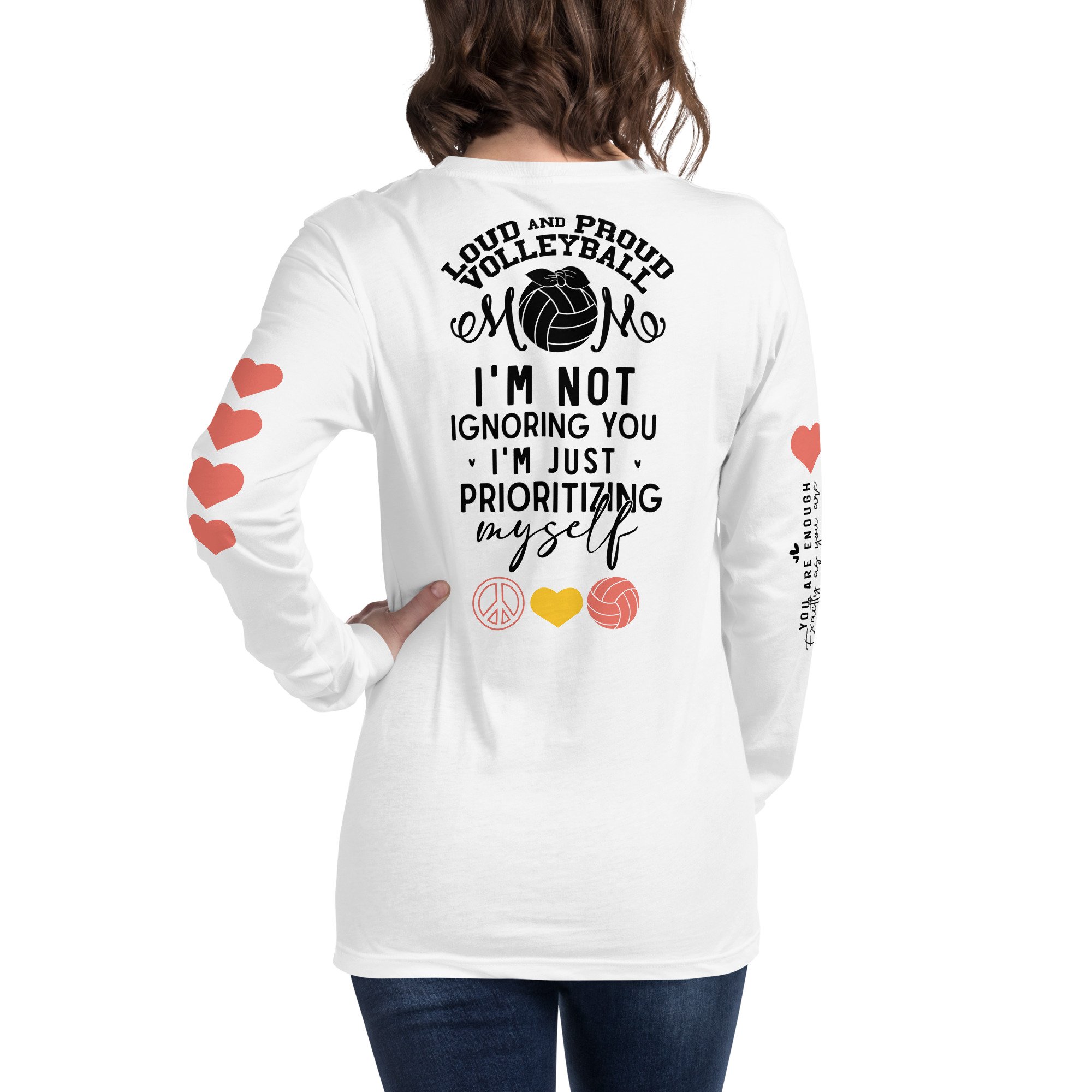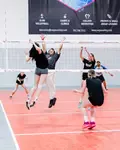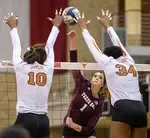- Improve Your Volleyball with Coach April
- Words Used in Volleyball
- Volleyball Mistake Slang Words
Bumps, Sets and Errors: Understanding Volleyball Mistake Slang Words
Get ready to impress your teammates with your knowledge of volleyball slang mistakes, as I break down common error-related terms used by players on the court.
One thing about volleyball, just like any sport, it has its own language, a lingo that players know, which has a unique set of volleyball mistake slang terms and expressions.
As a player or fan or like me, a coach, understanding these terms can help you communicate more effectively with your teammates as well as follow the game more easily.
Keep reading while I explore some of the most common volleyball slang words used to describe the mistakes, different types of errors and poor plays committed on the court.
From "shanks" to "facials," I'll cover the informal expressions that players use to talk about errors and mishaps during a game.
"Shank" - A Classic Volleyball Mistake Slang Word Used While Making A Passing Error
In volleyball, a "shank" refers to a poorly passed ball.
This happens when a player fails to properly control the ball with their "platformed" forearms, which results in the ball not going to its intended target but out of bounds for a point given to the opposing team.
Shanks can be frustrating for players, especially beginner plays, because they often lead to points for the opponent which disrupts the team's offensive rhythm.
"In the Net" - A Common Volleyball Mistake Slang Term Usually Made By Hitters or Servers
Another common mistake in volleyball is when a ball gets hit into the net instead of going over the net.
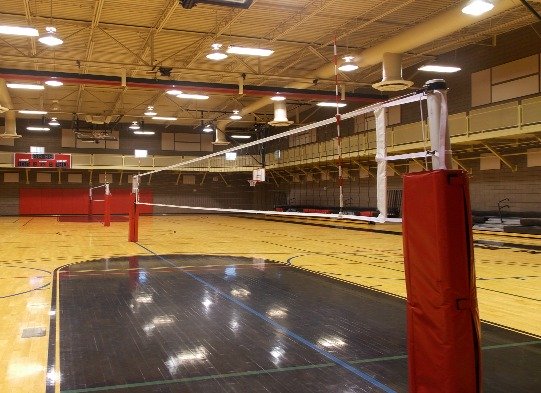 Players will say a ball is "in the net" to quickly communicate that the ball has made contact with the net and to let their teammates know to be ready to cover the ball to get it out or up or it will end up on the floor before anyone can get it up.
Players will say a ball is "in the net" to quickly communicate that the ball has made contact with the net and to let their teammates know to be ready to cover the ball to get it out or up or it will end up on the floor before anyone can get it up.Players will say a ball is "in the net" to quickly communicate that the ball has made contact with the net and to let their teammates know to be ready to cover the ball to get it out or up or it will end up on the floor before anyone can get it up.
"Out of System" - A Volleyball Mistake Slang Term for an Error-Induced Challenge
When a team is "out of system," it means that they are not in an ideal position to run their offense with three, two or even one hitting options..so they're in emergency mode in order to get the ball over the net in any mode possible.
This often happens when a player makes a mistake on the first or second contact, usually the first pass, that then forces the setter to run down a ball or someone else that's not a setter has to scramble to make a difficult play so that someone else on the team struggles to get the ball over on the third contact.
For example, if a player shanks the ball on the first contact, their teammates might say "We're out of system" to acknowledge the challenging situation they're in and have to react to...so that instead of the usual pass-set-hit in-system play, they're forced to pass-pass-and save-with-a-pass an out-of-system play.
"Six Pack" - A Volleyball Mistake Slang Tradition
For example, if a player doesn't call for the ball saying "Mine!" and their teammate gets hit in the chest with the ball, the player who made the mistake will owe their teammate a six-pack.
This tradition is meant to be a lighthearted way to acknowledge a huge mistake a digger who failed to dig a ball and got hit in the chest instead just made and for some teams builds camaraderie.
"Facial" and "Chester" - Volleyball Slang for Painful Mistakes
Along the same lines as the "six pack" two of the most colorful volleyball slang terms for mistakes are "facial" and "chester."
Words like "facial" or "chester" are frequently used volleyball mistake slang terms used to describe ways a player can legally dig a ball using body parts other than their hands.
What does a "facial" have to do with how you dig a volleyball?
The difference between these two terms used in defense is that with a "six pack" a player will get hit in the chest or upper body area and since the ball made direct contact with their body without them getting their hands up in time to dig or deflect it, they owe the hitter a six pack of beer, soda or beverage of their choice.
With a "facial" unlike the one you get when you pay someone to apply a cleaning solution to your face, the one in volleyball may sting a little, but then most players laugh it off, and keep playing.
In case, you thought there weren't enough volleyball slang words used to describe what happens when a player gets nailed by a hard hit another common word used to describe this defensive action is the "chester."
What does a "chester" have to do with how you dig a volleyball?
A chester belongs in the same category as a 'facial' or 'six pack'.
Its in the list of vocabulary terms in defense used to describe what happens when a player doesn't get their hands up in time to dig the ball.
It describes what happens when a player gets nailed in the chest by a hard spike.
The thing about a chester is that it isn't always whistled by the referee, especially if the ref decides that even though the digger didn't used their hands to contact the ball, the ball didn't come to a complete rest while it was on their chest.
If the referee thinks that the 'chester' wasn't a ball that was 'lifted', in other words a ball that comes to a complete stop when its on the player's chest, then they'll allow play to continue.
In this case the referee interprets the action as the ball having bounced off the player's chest which counts as one of the three contacts a team gets when trying to get it back over the net.
So, to answer the question that I can hear you formulating in your head, the answer is "yes" there are times that play will continue even though a player contacted the ball with their chest instead of their hands.
In each case, its up to the ref to determine whether play will continue or not.
So the best thing you can do is keep playing, no matter what.
You should keep playing the ball until you hear the referee blow the whistle indicating that the play has ended and that someone has earned a point, otherwise...keep playing!
Similarly, a "chester" refers to when a player gets hit in the chest by a hard spike.
the ball bounces off the player's chest without coming to a complete stop, the referee may allow play to continue, counting the chester as one of the team's three allowed contacts.
So To Sum Everything Up...
Volleyball slang words for describing mistakes add color and personality to the game.
While mistakes can be frustrating, it's important for players to remember to shake off the errors and focus on the next play.
By understanding and using these slang terms, you'll be able to follow the game more easily and feel more connected to the volleyball community.
So the next time you hear someone call out "Shank!" or "Out of system," you'll know exactly what they mean.
Do You Follow Me on Pinterest?
Follow me on Pinterest Volleybragswag to improve your game even faster!
I share alot of individual, partner and easy-to-do volleyball serving drills we do in class with my followers.
Many of these volleyball practice drills you can do at home by yourself or try at your next practice with your teammates.
If you're a B team or JV player trying to make varsity next year...your goal should be to complete 1000 reps a day of at least three of the basic skills on your own...volleyball passing, serving and setting should be at the top of the list.
If your athlete struggles with consistent serve receive, gets subbed out, or is overlooked for playing time—this is the fix you’ve been looking for.

Struggling with passing consistency?
I help talented passers tired of getting pulled from games because of inconsistent serve receive skills BUILD passing confidence without expensive private lessons using the same 3-step system that's helped dozens of my athletes get recruited.
Download my eBook for $17.99 and start building the passing confidence that keeps you on the court—and gets you seen by college coaches.
From Lady Vol to Legend: Coach April Produces Powerful Passionate Players...is that you?
What Are You Looking For?
Click to Download Your Pre Serving Ritual Mastery Checklist pdf:
🎯Volleyball Pre Serving Ritual Guide -
Players! Learn How To Transform Your Serve from Weak to Weapon
Click to Download Your Parent's Volleyball Serving Checklist pdf
🎯Parent's Volleyball Serving Checklist Guide
Parents! Help Your Player Develop Championship Serves (Even If You've Never Played)

Hi there!
Thanks for stopping by. Hope you learned something today that will help you reach your volleyball goals.
Be sure to subscribe to my email newsletter so you can learn more each week!
Stay strong! Stay motivated!
-Coach April

SUSCRIBE to my email newsletter below!
 Click to learn more about the weekly volleyball classes and clinics or email info@imrpoveyourvolley.com for information
Click to learn more about the weekly volleyball classes and clinics or email info@imrpoveyourvolley.com for informationCongratulations to my seven Boys-18s Vegas Volley club players who played in two state championship finals yesterday, the 3A and 5A State champinship finals at Sunrise Mountain High School.
TOURNAMENT CHAMPIONS!
A-1 Vegas Volley VBC
In It To Win It Tournament
May 2 - 4, 2025 Tournament
Gold Medalists
18s Premier Division
Vegas Volleyball's Unsung Heroes: Celebrating Moms with Peace Love Volleyball Shirts
Ready to energize your volleyball mom journey?
Subscribe to my 'Producing Powerful Passionate Peaceful Players' email list above on ImproveYourVolley.com.
You'll receive energy-boosting tips, exclusive insights from me, Coach April Chapple on maintaining momentum in volleyball.
Let's power up the Vegas volleyball scene together!
Recent Articles
-
Tips For Short Volleyball Players: Top Strategies to Beat Big Blockers
Jan 21, 26 04:56 PM
You don't need to be 6 feet tall to dominate at the net. Learn my tips for short volleyball players to use to outsmart bigger blockers and score more points. -
Essential Skills for a Hitter in Volleyball: Tips For Short Attackers
Jan 11, 26 07:05 AM
A short hitter in volleyball can aim the ball for the seam of the block to score since its harder for defenders to block at the net or dig up in the back row. -
10 Hitting Tactics Short Volleyball Players Use Against Big Blockers
Jan 11, 26 06:57 AM
These are 10 hitting tactics that short volleyball players, can rely on hit against and sideout and score against teams with big blockers in the front row.
